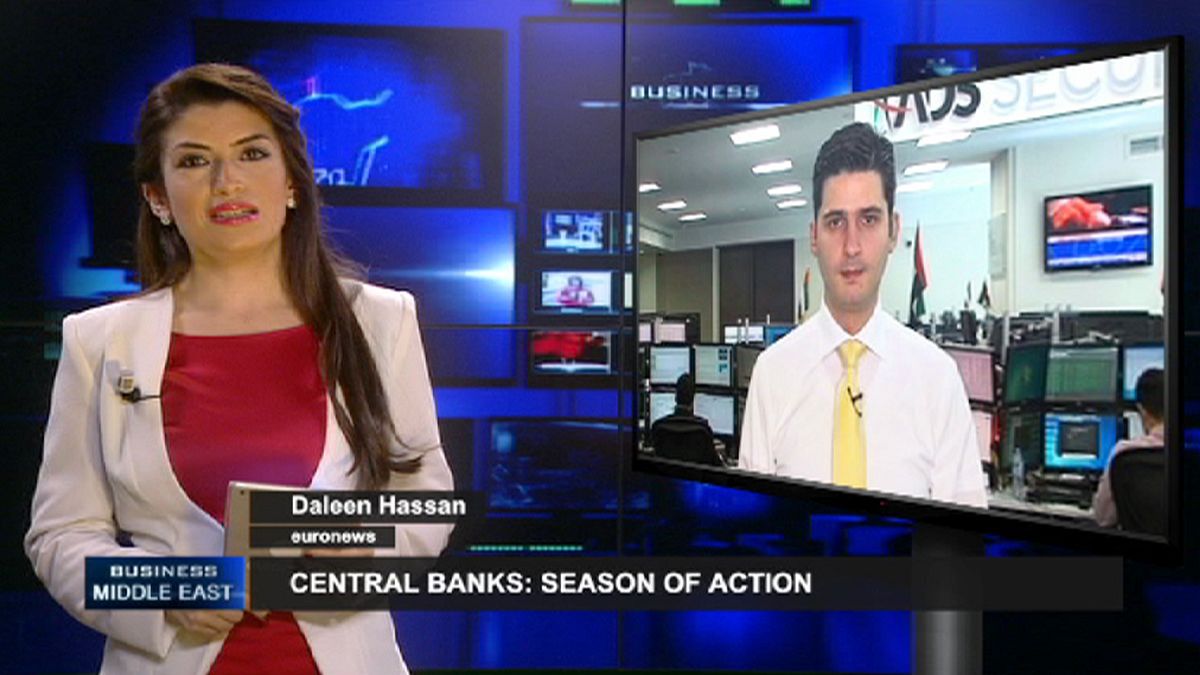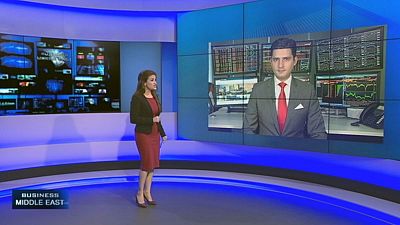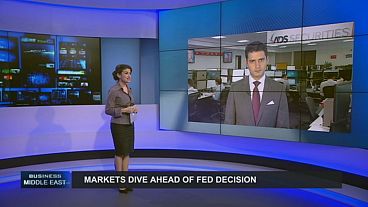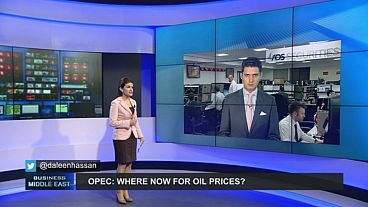The new season of Business Middle East looks at the world’s most important economic events as they affect the Middle East, with central banks in focus
In the new season of Business Middle East we focus on the world’s most important economic events as they affect the Middle East.
Throughout the series we analyze global economic variables, which in turn could change the financial outlook in the Middle East.
In this episode we consider the central bank interventions that took place in January. Financial markets received almost daily jolts from the central banks’ actions, leading in some cases to panic. This in turn further accelerated policy changes.
Central banks: season of action
January was a month of major events in the banking sector. Some had been expected, but other events hit like a tsunami.
On January 15, the Swiss National Bank made a shock decision to end the euro currency ceiling that it had put in place, that caused the value of the Swiss franc to jump by 30 against against the euro.
One week later, the Bank of England voted to keep UK interest rates unchanged, it was the first time since last July that the vote was unanimous.
Policymakers who had wanted to put up the cost of borrowing changed their minds as inflation in Britain slipped to its lowest level in 14 years. Since the end of last year, we’d been expecting the European Central Bank would announce a stimulus, quantitative easing programme – -‘QE’.
On January 22, ECB President Mario Draghi did indeed unveil QE. The surprise came in the amount – 60 billion euros per month to be pumped into the eurozone economy from this March until at least September next year.
In the US meanwhile, the Federal Reserve prefers to remain patient in raising interest rates.
Fed Chair Janet Yellen has indicated that the word patience in their statements means postponing the decision for at least two policy meetings.
The end of this eventful month saw Russia’s Central Bank lowering its key interest rate unexpectedly from 17% to 15%. Is this a sign of darker days to come? Or is it the light at the end of the tunnel?
For more on these issues Daleen Hassan spoke to Nour Eldeen Al-Hammoury Chief Market Strategist at ADS Securities, who will be with us every week providing insight into the latest market developments, as well as wider analysis of economic events.
DH
There has been a domino effect intervention among central banks. Is it all about the sharp decline in oil prices and a slowdown in growth or are there other factors?
NA-H
Well, it’s not because of oil only, first of all, the global economy has been weakening and slowing down since the middle of last year, however, the central banks at that time anticipated that this slowing down would be a short-lived cycle. But most importantly the global economy has needed major structural reform the financial crisis. Global debt is rising significantly, reaching a record level, even higher than before the financial crisis.
Things are likely to be even worse this year
DH
What are the risks of super low interest rates, and is this a sign of worse to come?
NA-H
If you remember, we warned about this in the previous season of the show, things are going against the central banks’ views, which has led to panic decisions by some major central banks around the world. Every central bank acted separately and it wasn’t coordinated intervention, leading to a currency war. And we may face more challenges this year, as cutting deposit rates below zero is a clear sign that the global economy is very close to a recession and the central banks are trying to avoid this as much as possible.
DH
Let’s look specifically at the Middle East, what was the impact of the banks’ approach there? Could we see a similar move with the central banks in the region?
NA-H
Well, of course the Middle East/North Africa region felt some effect from these decisions. The markets were trading within a wide range, especially after the disappointing earnings from some of the major companies, in addition to that, some companies postponed some major projects following the decline in oil prices. In the meantime, we are not anticipating any intervention by the central banks here in the region anytime soon, unless the Federal Reserve intervenes with a major announcement, at this time, the regional central banks will follow as the currencies are well correlated and directly connected to the US Dollar.
Business snapshot
Business snapshot , our new segment takes you to different places every week, giving a glimpse into their local economies and enterprises.
Our business snapshot this week is from the United Arab Emirates which has granted the French oil company Total a new 40-year onshore exploration deal.
Total Eclipse
Total has won its bid to operate some of the largest onshore oil fields in the United Arab Emirates. A renewed onshore concession agreement was signed with the Supreme Petroleum Council of Abu Dhabi and the Abu Dhabi National Oil Company (ADNOC) is for 40 years.
Under the deal the UAE’s 15 principle onshore oil fields will be operated by Total, representing over 50% of all Emirates’ oil production. This year ADCO expects production to be around 1.6 million barrels of oil per day, with the goal of increasing output to 1.8 million from 2017.
Total’s bid gives it a 10 percent stake in the new concession and puts pressure on the competition – Shell, BP, and several Asian companies – to increase their offers for similar or smaller stakes.
But even as Chief Executive Officer Patrick Pouyanne hailed the deal, he also announced his company would be cutting its spending on exploration by 30 percent this year in response to falling oil prices.



